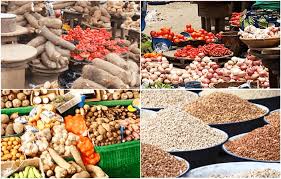The Federal Ministry of Livestock Development has unveiled plans to scale Nigeria’s national livestock herd to 398.9 million through a structured feed and fodder policy aimed at transforming the sub-sector.
Speaking at the validation workshop for the National Animal Feed and Fodder Policy held in Abuja, Minister of Livestock Development, Idi Maiha, emphasised the strategic importance of the initiative.
Maiha said the new policy is designed to enhance feed production, ensure a stable supply chain, and improve market access and investment opportunities.
This policy, he said, is central to achieving the national targets in food security, economic diversification and productivity.
“With a structured approach to feed and fodder, we are laying the foundation for sustainable livestock development,” Maiha stated.
He noted that the livestock industry has faced long-standing challenges such as insufficient feed supply, poor quality control, weak regulation, and limited private sector participation factors that have hindered productivity and resilience in the sector.
The draft policy, now undergoing stakeholder validation, proposes practical steps to address these issues, he said.
According to him, this focuses on expanding feed and fodder production, encouraging private sector investment, supporting research and innovation, setting quality benchmarks, and strengthening institutional coordination.
In her remarks, Director of Ruminants and Monogastric Development in the Ministry, Winnie Lai-Solarin, stressed the urgency of the initiative.
She noted that feed and fodder account for over 70per cent of production costs in animal agriculture and have been a root cause of recurring farmer-herder conflicts due to scarcity.
“This document is timely. For the first time, Nigeria will have a national guide for the production, processing, marketing, and utilisation of feed and fodder.
“It will cover all key areas, including legal frameworks around land access, training for farmers, market structures, and sustainable pasture utilization,” he said.
She added that the policy will also include a robust monitoring mechanism to track implementation and ensure accountability.
Also, the President of the Nigerian Food and Fodder Multisector Platform, Prof Meikano Ari, described the policy as a critical milestone.
He called for strong private sector participation and emphasised the need for data-driven interventions.
“Feed and fodder remain the most significant constraint in Nigeria’s agri-livestock value chain. If we don’t address this, we cannot resolve the broader insecurity and land-use conflicts facing the country.
“Investing in fodder production, particularly grass and pasture reserves, is essential for peace, productivity, and sustainability,” Prof Ari said.
The policy document, in development since 2018, is now at its final stage of stakeholder review before adoption and full implementation.






